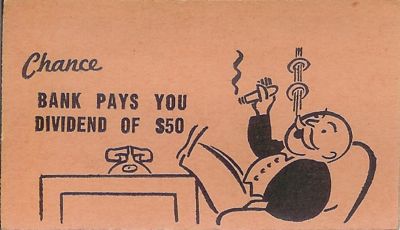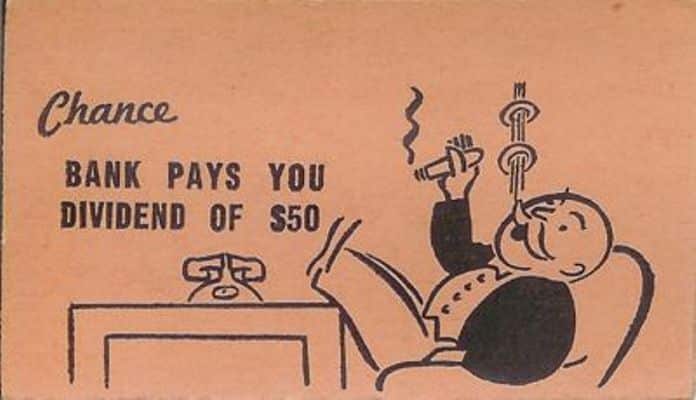 If you’re unfamiliar with Stock Dividends the best way to describe it is a sum paid out regularly (usually quarterly) by a company to it’s shareholders. Where does this sum come from? Normally out of profits or company reserves. Not bad, eh? You buy a stock and then get paid back a regular and consistent sum. It’s like free earnings. What you then do with it is up to you. You can reinvest it into that same stock or cash out.
If you’re unfamiliar with Stock Dividends the best way to describe it is a sum paid out regularly (usually quarterly) by a company to it’s shareholders. Where does this sum come from? Normally out of profits or company reserves. Not bad, eh? You buy a stock and then get paid back a regular and consistent sum. It’s like free earnings. What you then do with it is up to you. You can reinvest it into that same stock or cash out.
Are Stock Dividends and Dividend Funds the same thing?
No. Stock Dividends are stocks that offer an annual payout to shareholders. Dividend Funds are a type of mutual fund that invests in Stock Dividends.
Why do companies have dividends?
Dividends are an additional incentive to purchase a companies stock. Usually it is older and more stable companies that offer dividends. They might not be growing a whole lot and dividends offer an attractive investment piece.
Is a Stock Dividend guaranteed?
No company is obligated to pay dividends. Doesn’t matter when you purchased the stock. Although they normally do unless they’re in some dire financial troubles.
Can the Stock Dividend interest rate change?
Yes. There is fixed rate known as preferred dividends and variable rate based on a company’s latest profits known as common dividends.
What dates should I keep in mind?
4 Important Dates:
Declaration Date – The date when the company sets the dividend payment date, the amount of the dividend, and the ex-dividend date.
Record Date – The date the company gathers a list of all current shareholders. These are the ones who will receive a dividend sum.
Ex-dividend Date – This date is normally 2 days before the record date. This date is offered so that any non-shareholders can go out and purchase stock and get in on the dividend payout. This is also allows all pending transactions to complete before the Record Date.
Note: Memorize the ex-dividend date. Only once did I not, and I missed out on the dividend payout. Hard lesson to learn and one I won’t forget.
Payment Date – This is the date checks are mailed out or your brokerage account receives a nice lump sum.
Can I “Capture Dividends”? Aka buy a stock right after the dividend announcement and then sell it right after the pay-out for a profit?
Yes, but it’s not a good idea. Works for some but not most. Since the dividend comes from a companies profits or reserves the share price will usually adjust to reflect the dividend payout. And since buyers know they won’t get a dividend they’re no longer willing to pay as much for the stock.
Dividend Aristocrats. What is that?
Dividend Aristocrats are stocks that have for 25 years consistently offered dividends and increased their dividend payout. Own one of these stocks and you know your dividend will keep going up. For a list of 2013 Dividend Aristocrats click here. The payout might start off small but over time – 5, 10, 20 years – it will become big.
Why buy and Invest in Stock Dividends?
These stocks and mutual funds offer a reliable investment with a steady return. Since it’s normally successful, well established companies that offer them you can bank on them continuing to grow and that dividend rate increasing. Buy some in your retirement account and let it grow. Set it up to automatically reinvest dividend payouts into that stock. Most brokerages won’t charge a fee for this. If you’re looking to diversify your portfolio this should be one of your first choices.
Featured image by http://dribbble.com/maros










